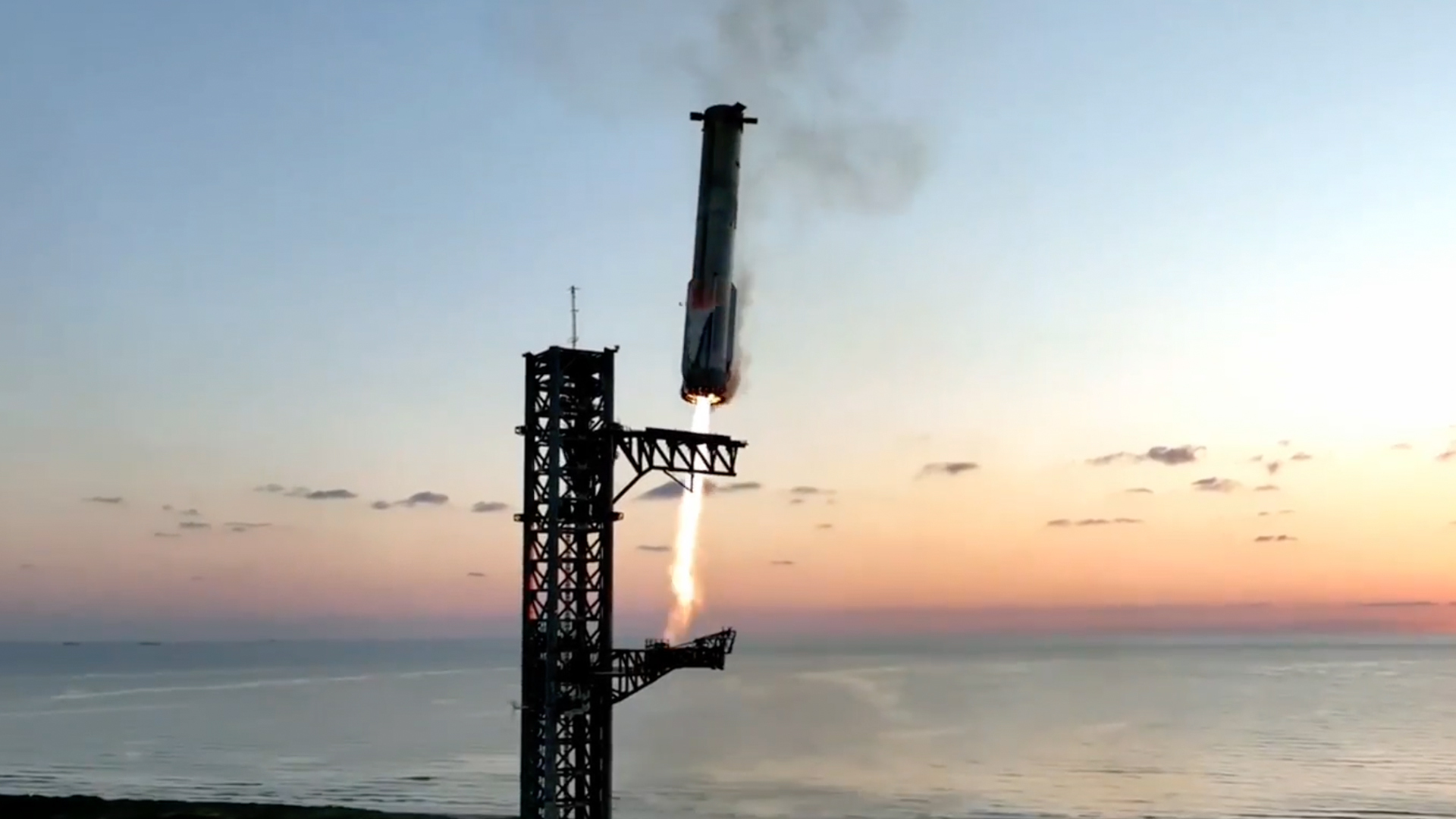
SpaceX is targeting Tuesday afternoon (Nov. 19) for the launch of its sixth Starship flight test.
The upcoming test flight is expected to lift off on Nov. 19 during a 30-minute window that opens at 5 p.m. EST (2200 GMT). The Starship megarocket, which consists of two fully reusable elements — a huge first stage called Super Heavy and an upper-stage spacecraft known as Starship, or simply "Ship" — will launch from the company's Starbase facility near Boca Chica Beach in South Texas. You'll be able to watch the launch live on Space.com, courtesy of a SpaceX simulcast, beginning 30 minutes before liftoff. Follow our Starship live updates for more mission milestones.
"The next Starship flight test aims to expand the envelope on ship and booster capabilities and get closer to bringing reuse of the entire system online," SpaceX officials said in a statement announcing the sixth test flight.
Starship Flight 6 follows a successful fifth test flight on Oct. 13, during which the Super Heavy booster was captured using giant metal "chopstick" arms upon its return to Starbase, while the upper stage continued in flight before completing a controlled entry and landing maneuver over the Indian Ocean.
"The success of the first catch attempt demonstrated the design feasibility while providing valuable data to continue improving hardware and software performance," SpaceX said in the statement.
If all goes according to plan, the booster will once again demonstrate a catch landing back at Starbase during Flight 6, which will take place about seven minutes after liftoff. Otherwise, Super Heavy will default to a controlled splashdown in the Gulf of Mexico.
Meanwhile, after separating from the booster, Ship will fly the same suborbital trajectory as it did on Flight 5. This time, however, the spacecraft will attempt an in-space burn of one of its six Raptor engines, testing its deorbit burn capabilities.
Starship will also perform a series of heatshield experiments and maneuvering changes for reentry — including flying at a higher angle during the final phase of descent — before splashing down in the Indian Ocean about 65 minutes post-launch. The window for Tuesday's test flight is purposefully scheduled for late afternoon, allowing for better observations of reentry during daylight, according to SpaceX.
Ahead of Tuesday's test flight, hardware upgrades were completed, which "add additional redundancy to booster propulsion systems, increase structural strength at key areas and shorten the timeline to offload propellants from the booster," SpaceX said in the statement.
During its return to Starbase, Super Heavy is designed to slow down from supersonic speeds. This, in turn, causes an audible sonic boom that can be heard as a brief thunder-like noise by people in the surrounding area.
"Learnings from this and subsequent flight tests will continue to make the entire Starship system more reliable as we close in on full and rapid reusability," SpaceX said in the statement.







